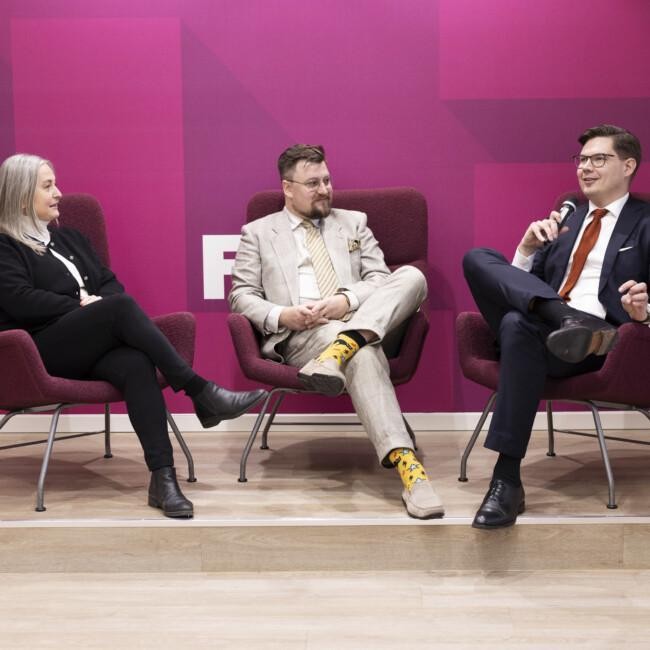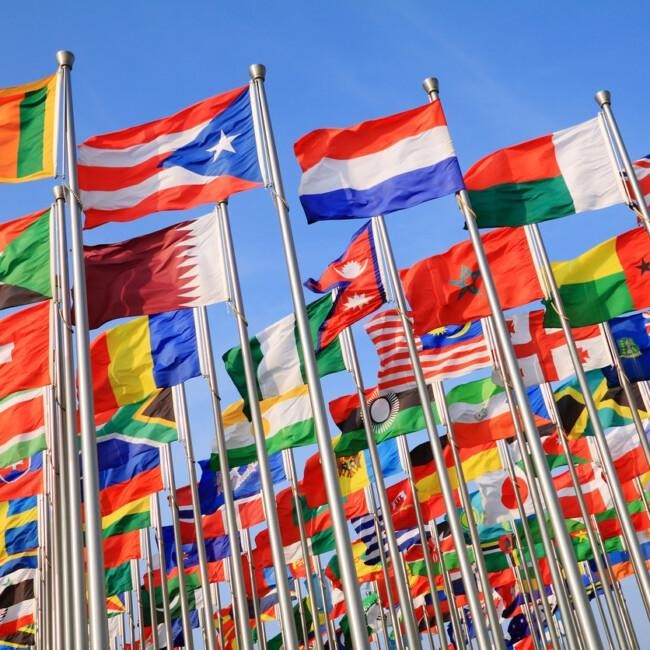
The present discussion on modernization stems from the realization that the pattern of growth Russia enjoyed before the crisis should be replaced by a more intensive development strategy. Can Russia modernize itself by evolutionary means, or is radical modernization the only feasible option? Will the constraints inherent in the Russian political system outweigh the possibility of a new start provided by the crisis? The ongoing energy efficiency reform is one of the priorities of the modernization agenda. The EU has been called upon to improve its energy relations with Russia by contributing to the energy efficiency reform. What are the prospects for the European actors? Is Russia’s transforming energy efficiency sector indeed a promising venue for practical cooperation?
Speakers:
Dr Katri Pynnöniemi, Researcher, The Finnish Institute of International Affairs
Political constraints on Russia’s economic modernization
Dr Vadim Kononenko, Researcher, The Finnish Institute of International Affairs
Russia-EU cooperation on energy efficiency: enthusiasm and challenges ahead
Comments: Dr Laura Solanko, Visiting Researcher, The Finnish Institute of International Affairs
Chair: Dr Arkady Moshes, Programme Director, The Finnish Institute of International Affairs
Summary of the seminar
Dr Arkady Moshes welcomed everyone to the seminar to discuss Russia’s modernization, one of the most topical themes in the country at the moment. Russia and the EU are expected to sign another paper on modernization in the upcoming EU-Russia summit.
First, Dr Katri Pynnöniemi presented several political constraints that influence economic development in Russia. One of the key drivers for the modernization in Russia has been the impact of the global financial crisis: it is clear that more diversification and less dependency on the oil and gas sector are necessary. Russia is thus facing a double challenge to modernize and increase innovation. The deeper driver that underlies the discussion on modernization is Russia’s prestige as a great power. The domestic driver for modernization is the fact that the ‘hybrid regime’ is in a stalemate. The elite wants to stay in power and to continue with the system built years ago; they want stability in the name of change, but it can be unsustainable in the long run.
The discussion on Russia’s modernization has been going on already for a long time. President Medvedev has announced that Russia’s dependency on raw materials and the “primitive economy” is humiliating. The most visible part of the campaign for modernization is the building of ‘Innogorod’, an innovative city at Skolkovo, which is a way to tackle the issue of backwardness. Although certain key elements in the system are functioning, there is a lack of commercialization and spillover, and this is mainly because of the legacy of the Soviet R&D. The Post-Soviet heritage can also be seen in the strong sense of distrust towards the authorities and the functioning of society. In the framework of technology and innovations, Russia is not developing very rapidly and its expenditure on R&D is rather small compared to other world economies.
The key challenges in the modernization campaign are: infrastructure investment and development, reform of the education system, boosting internal market demand, encouraging domestic entrepreneurship, developing policies designed to encourage international partnership, and improving transparency. Finally, Dr Pynnöniemi presented the weak signals for change that can be seen looking at these modernization efforts. We should in particular pay attention to the two commissions: Presidential Commission on Modernization and Technological Development of Russia and Government Commission on High Technology and Innovation. These two commissions are not necessarily in conflict, but the question of coordinating the actions between these two is left open. The law on Skolkovo, transgressing the limits of the system, is another weak signal that we should continue to keep an eye on. Besides, the scepticism in bureaucracy is the biggest problem in modernization, meaning the contest between the ‘participants’ and the ‘sympathizers’ of modernization.
Dr Vadim Kononenko started his presentation by noting that every reform has to be estimated by its success in implementation. Besides, every reform has politics in it, which makes implementation often very problematic. Energy efficiency is one example of a politicised reform process. Dr. Kononenko stressed that the progress in Russia-EU cooperation depends on internal developments in Russia. When Russia’s new legislation, called the framework for energy efficiency, came into force in 2009, things really started to happen with great enthusiasm. Dr. Kononenko argued that modernization cannot be successfully carried out without energy efficiency and Russia really has enormous potential to improve in this area. According to EBRD, the economy uses over seven times more energy per unit of GDP compared to the average for West European economies.
Energy efficiency is not an entirely new item on the Russia-EU agenda. Since the 1990s, there has been practical cooperation, but progress has been rather difficult. The new legislation doesn’t remove all the barriers and implementation remains patchy. The reform comes from the top, but the implementation has to be done in the regions and municipalities. Until now, only few regions in Russia have implemented these reforms. As 2012 approaches, the policy process might be delayed because of other concerns and priorities such as the upcoming elections.
In the existing Russia-EU cooperation format, the EU has limited role in Russia’s energy efficiency process. The cooperation has been limited to a few specific fields in the regional or municipal level. The energy service companies (ESCOs) could be the test case in the area of cooperation. The ESCOs deliver services and other energy efficiency measures, and accepts the risks of doing so. The payment is based on the achievement of energy efficiency improvements. According Dr. Kononenko lots of possibilities could be found in setting up the ESCO’s. Finally, Dr. Kononenko emphasized that the bulk of work needs be done by Russia alone and the West can only have limited input in the process. The Russia-EU cooperation depends on the progress of implementing the energy efficiency policy and other factors that lay outside the energy sector. The cooperation should proceed towards assisting Russians with knowledge and instruments of energy management, but however it remains very difficult in practice.
Comments were provided by Dr Laura Solanko who discussed why there is a need specifically to modernize and not reform. The crisis in Russia has unveiled some weaknesses in its economic structure. But the fact that the public sector economy was in a good shape and the price of oil kept rising meant that by mid-2009 there was no genuine threat to the political and economic systems. The ruling elite saw reforms as necessary, but there was no strong support for it and therefore state-lead modernization was called for. In the late 1990s and beginning of 2000s, Russia was a normal country with normal institutions, but it now risks to be an upper-middle income country with poor institutions.
Dr Solanko discussed then how to influence the success of the modernization measures. She first mentioned that the “resource curse” should be tackled by increasing the number of stakeholders through privatization and by fostering the development of small and medium enterprises. Also “external anchors”, like the WTO and OECD could possibly be used in facilitating modernization. The concrete achievements are the establishment of Skolkovo, the test lab insulated from the surrounding society, and the government’s focus on energy efficiency. Russia’s investment in energy efficiency could increase Russia’s export potential, decrease operating costs and reduce environmental damage both locally and globally. Besides, the power sector has been reformed, which could be used as an external anchor. Russia could increase its energy efficiency through pricing issues, public awareness and structural reforms in heat supply, gas and electricity transportation. However, high energy consumption is also due to climate, long distances and the industrial structure. In the end, Dr. Solanko said that the EU countries can cooperate with Russia in funding, training and increasing the awareness of climate change mitigation, but after all, it is limited what the EU can do.
In the Q&A session there was a question about the importance of the bilateral level in Russia-EU cooperation. Russia is indeed more inclined to deal with the EU countries bilaterally and wants bilateral agreements and structures. However, it was stated that it is not so crucial whether the form of cooperation is bilateral or on the EU-level. Another question from the audience was whether the Northern Dimension is still in the picture, and the speakers though that yes, it is still alive, though energy efficiency is not specifically mentioned in its policies – the primary emphasis is in environment. In the end, there was discussion about the regulation of energy prices by the Russian government. It was suggested from the audience that the best practice would be to let the market function in Russia in determining the price. The panellists emphasized that in Russia there are different energy products and only some of them are regulated; the government doesn’t want to take responsibility of everything. The situation is thus more complex: the market in Russia is not a true market, but a specific and distorted one.






